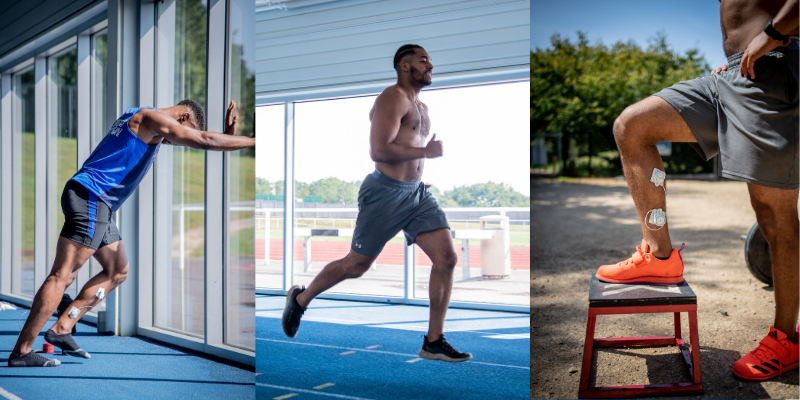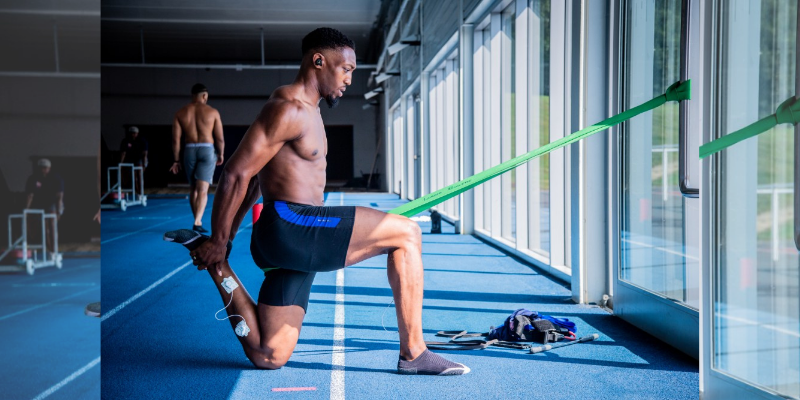“When you are performing at that elite level, the margins are tiny for determining whether you win or lose... Hard work is expected if you want to get to the top. There are no shortcuts.”
These are the words of former Wales, British & Irish Lions Rugby International, Ieuan Evans, who in his career won a total of 72 caps for Wales, 28 of which as a captain, and scored 33 tries (at that time a record for Wales).

Evans understands first-hand what it takes to succeed in rugby, and stresses the importance of optimising performance and recovery, “Anything that can help you [to] physically perform at your very best... is only going to be of benefit down the line.”
‘Fit for Rugby’
The game of rugby has never been as physical as it is today, and the training for players has never been more intense. The fitness of players and the team as a whole has become one of the highest priorities for clubs. National governing body England Rugby have established the, ‘Fit for Rugby’ programme to help athletes build ‘key facets of rugby such as; strength, power and agility’. This programme includes six training pillars; balance & conditioning, strength & explosive power, speed & acceleration, agility & mobility and power, endurance & stamina.*

These training pillars are a good starting point for any player, but need to be complemented by other key elements to ensure the player can achieve peak physical fitness.
Players need to also consider optimising their recovery, nutrition, mental preparation and personal discipline. A fitness regime extends beyond physical ability and can be important to help avoid injury.
Injuries in rugby
In such a physically demanding sport, injuries are commonplace and difficult to avoid. What can really differentiate one rugby player to the next is how they choose to recover.

Former Wales and British & Irish Lions Rugby International Brynmor Williams explains: “I have had multiple injuries throughout my career, as have many rugby players. Like any contact sport, you have to accept that it comes as part of the package. The injuries come along and you have to deal with them, although nowadays the treatment and advice the players get is fantastic.”
Williams believes that during his career in the 1970s and 80s players would be expected to come back from injuries too quickly, leading ex-professional athletes to become more susceptible to long-term pain conditions such as fibromyalgia and arthritis. Williams believes his own chronic pain, trigger finger is directly linked to the lack of recovery practice at the time.
He advises professional athletes: “Players need to have a long-term view. If they are injured they need to be fully recovered before they go back to rugby, if not it could impact their body not just in the immediate future, but for the rest of their lives.”

Don’t underestimate recovery
As well as staying fit, players can do several things to help them avoid injury including warming up well, stretching, hydrating properly and pre-habilitation to enable the muscles to be ready for what they need to do on the field. One recovery method both Williams and Evans are strong believers in is the use of bioelectrical therapy to help injuries and to ‘amplify’ pain management or recovery.
“Sports science has moved on immensely since the time that I first started,” shares Evans. “It used to be a sponge, some cold water and run back on the field! I'd loved to have had this ability to be able to help me during those times.”

“Bioelectronic therapy is there to help your body amplify what it does naturally. The restorative aspect really is sensational. It can enhance your body’s ability to recover from training, but can also be useful for pain management.”
Brynmor Williams has also successfully used NuroKor’s bioelectrical therapy to manage some of his old rugby injuries, including problems with his hands and fingers. He combines the mitouch and korglov accessory to target the area effectively. Williams wishes he had had access to bioelectrical devices such as NuroKor’s when he was a player, and believes more of today’s rugby players could be taking advantage of bioelectrical therapy to aid recovery and help manage injuries.
Williams explains; "Any equipment, any technology, anything, which is enhancing recovery, and not only recovery for them to play the next game. But recovery by way of getting them prepared for the next 40 years. Because when you hit 30 playing professional sport, it's the next 30 years that matter, not the 30 years that have just gone.

"I feel I've got up-to-date stuff now with NuroKor... in fact, I've had a session this morning, and my hands are moving a lot better as a result. It doesn't solve my problem, but it's certainly improving my situation.”
Staying in one piece
With rugby played at a tempo never seen before, optimising performance and recovery is an extremely important element of the game plan. Without adequate preparation and fitness training, enduring a full game of rugby is almost impossible, leading to injuries and a short career in the game. As Brynmor Williams says: “to be at the top of your game you need to be in one piece.”
Listen to our full interview with Brynmor Williams on The BioElectronics Podcast.
*For full details of England Rugby’s ‘Fit for Rugby’ programme, visit the England Rugby website
Click here to learn more about how NuroKor aids training and recovery.




